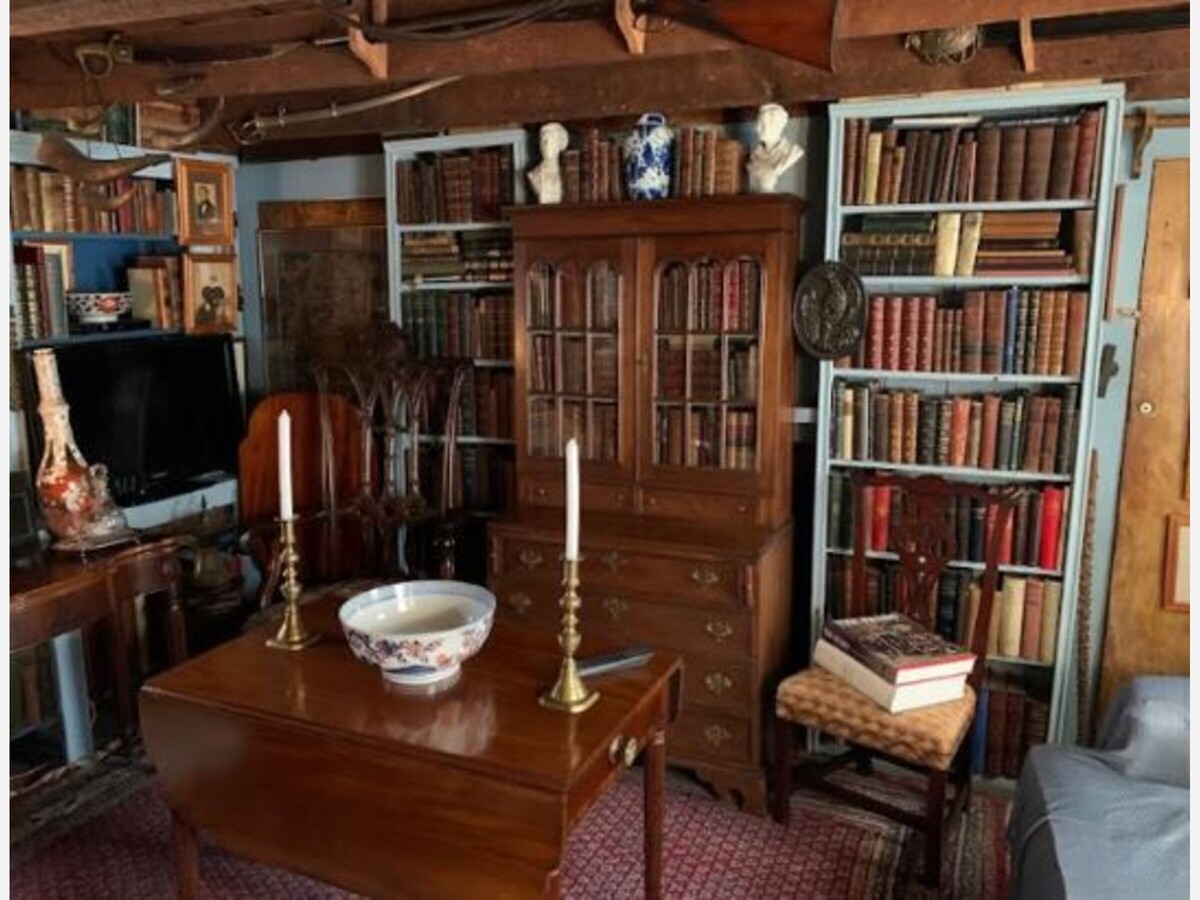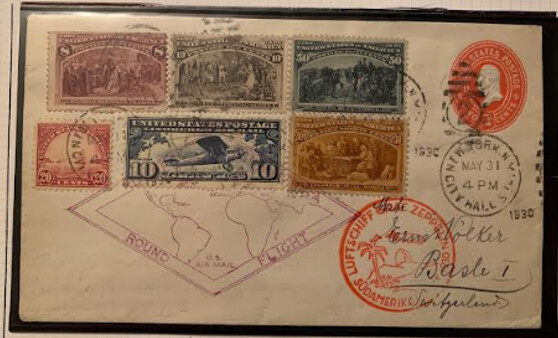Image


Massachusetts, famed for its high level of scholarship since the founding of Harvard in 1636, had been home to a well-educated and well-read citizenry. Here is part of a fine private library as an example of what was to be found in many Massachusetts homes in the Federal Period.
PART 2 (Part 1 ran yesterday)
By: James C. Johnston Jr.
What can you do when you don’t get out like you used to? You can: work at home, go crazy, read some good [or bad] books--whichever is more entertaining, cook a lot, get fat [can also be fun but….], send out for fast food, get fatter [too much fun], or discover your old hobbies of collecting “Stuff”. I once made a nice bit of change by catering to peoples’ desire to accumulate, collect, and systematize accumulated objects of virtue into well displayed collections which were very decorative and gave a great deal of pleasure. Leaving aside yesterday’s tale of a greedy bank teller, we now delve further into the joy and occasional madness of collecting.
Not only royals collected stamps. Actors, pop singers, and opera stars like John Lennon, Yul Brynner, Adolf Menjou, and Lily Pons also collected these wonderful tiny pieces of paper which like magic carpets could transport you anywhere without even leaving the kitchen table. Most importantly, millions of very ordinary people from all walks of life collected stamps for fun, education, and even profit on occasion.

Above, the cover [stamp or stamps used on an envelope or post card] seen here is popular with collectors of World War II Postal History. The complete occupation issue of German overprinted stamps for Alsace was posted on this cover at Strasbourg on January 13, 1941.
It is also interesting to know that when Edward VIII gave up the throne of England in December of 1936, for “The Woman he Loved, ” Wallis Warfield Simpson, the twice-divorced predatory she-wolf and very close friend, and rumored lover of Joachim von Ribbentrop, Hitler’s Ambassador to England and later Minister of Foreign Affairs in Nazi Germany until the fall of the Third Reich, one of the many assets Edward tried to make money on was the Royal Stamp Collection. Edward was grabbing everything else that wasn’t nailed down, as he fled the throne, including Royal Bed Linen!
Actually Edward VIII also collected stamps actively for a while. When a collecting friend asked why he gave up the hobby, Edward replied, “The Old Man [his father George V] always gets in there first and grabs everything!”
Needless to say, the “Now-Former-King-and-Emperor-of-India-Edward VIII,” subsequently known as “The Duke of Windsor” was informed by the Palace that the Royal Collection went to and with the occupant of the throne, and therefore the royal collection was now the property of George VI, Edward’s younger brother and successor. Edward was also told that his bride-to-be, Wallace Simpson, would not be given a royal title, but would only be known as “Her Grace, Wallace Duchess of Windsor”, and that she would not be allowed any royal curtsies or appellations of “Your Highness” just the odd “Your Grace,” and on a good day, maybe a polite nod of the head, as a formal form address just like those accorded to all of the other mere non-royal duchesses. Couldn’t you just cry for poor Wallace?

This Graf Zeppelin cover, sent to South America in 1930, is franked with 6 cent, 10 Cent, 30 cent, and 50 cent values of the then 37 year old Columbian Series of Stamps. This rare usage is accompanied by a 1927 Lindberg Issue, a definitive 20 cent “Golden Gate “issue, and all stamps are on a 1898 two-cent postal envelope. This is a real philatelic treasure.
I have collected stamps since 1949 when I became fixated with my Uncle Richmond Foss’s collection. I can remember him working with his stamps when I was a tiny kid, and by 1949, I was ready to start collecting. My mother researched the best way to do this collecting thing, started me off by funding my efforts, then let me go off into the wilds of collecting. She never interfered with what I was doing. She knew that in time, and after making some mistakes, that I would figure it out. I ruined a lot of stamps in the beginning which were lovingly purchased from a store on Main Street, J. J. Newberry’s, where packets of stamps could be found for ten cents, twenty-five-cents, and some bags of stamps for a dollar! Almost all of these packets were provided for sale by the “World’s Biggest Stamp Company” H. E. Harris of Boston.
My uncle, some older collectors, and other nice people helped me out with my hobby. Mrs. Alice Clark, a very dear family friend, bought me my very first printed stamp album, and let me paw through her huge attic where the very ancient Clark Machine Shop records were kept with thousands of covers which are stamps on their original envelopes or postal entries, post cards, or wrappers. It was heaven for a kid with very few means. My uncle had informed me that stamps must never-ever be removed from their original envelopes. This rule, like all of the other rules he laid down in the field of collecting stamps, I observed to the letter.
Covid-19 is still with us, but at least it did one positive thing. It made us slow down for a little while, gave us an enforced time-out to settle back and revaluate things. It made many of us bring out our old hobbies and learn to enjoy them. These hobbies may even have brought back a sort of fun we had forgotten about. I still collect stamps, and a few other odds and ends. As I am about to enter my eightieth year, I still have that thrill of excitement when I can find time to “Play with My Stamps” as my Grandmother Foss used to say.
When I am with my collections, I can forget what else may be going on in the world which might distract me from pleasure. After all, that’s why we are here isn’t it-namely-to have as much fun as we can. At least that is what I always thought. And it is well also to remember what John Henry Cardinal Newman had to say on the subject of life purposes as he went through his very useful and philosophical life. Cardinal Newman was the most intellectually exquisite of polymaths who once defined a gentleman as, “A person who never inflicts pain.” Now that is a wonderful life goal if I ever heard one.
James C. Johnston Jr. is a former Franklin selectman, Franklin High School history teacher, and author of "The African Son," a novel , as well as "The Yankee Fleet" and "Odyssey in the Wilderness," (a history of Franklin, Massachusetts). Article copyright James C. Johnston, Jr. 2023, used with permission